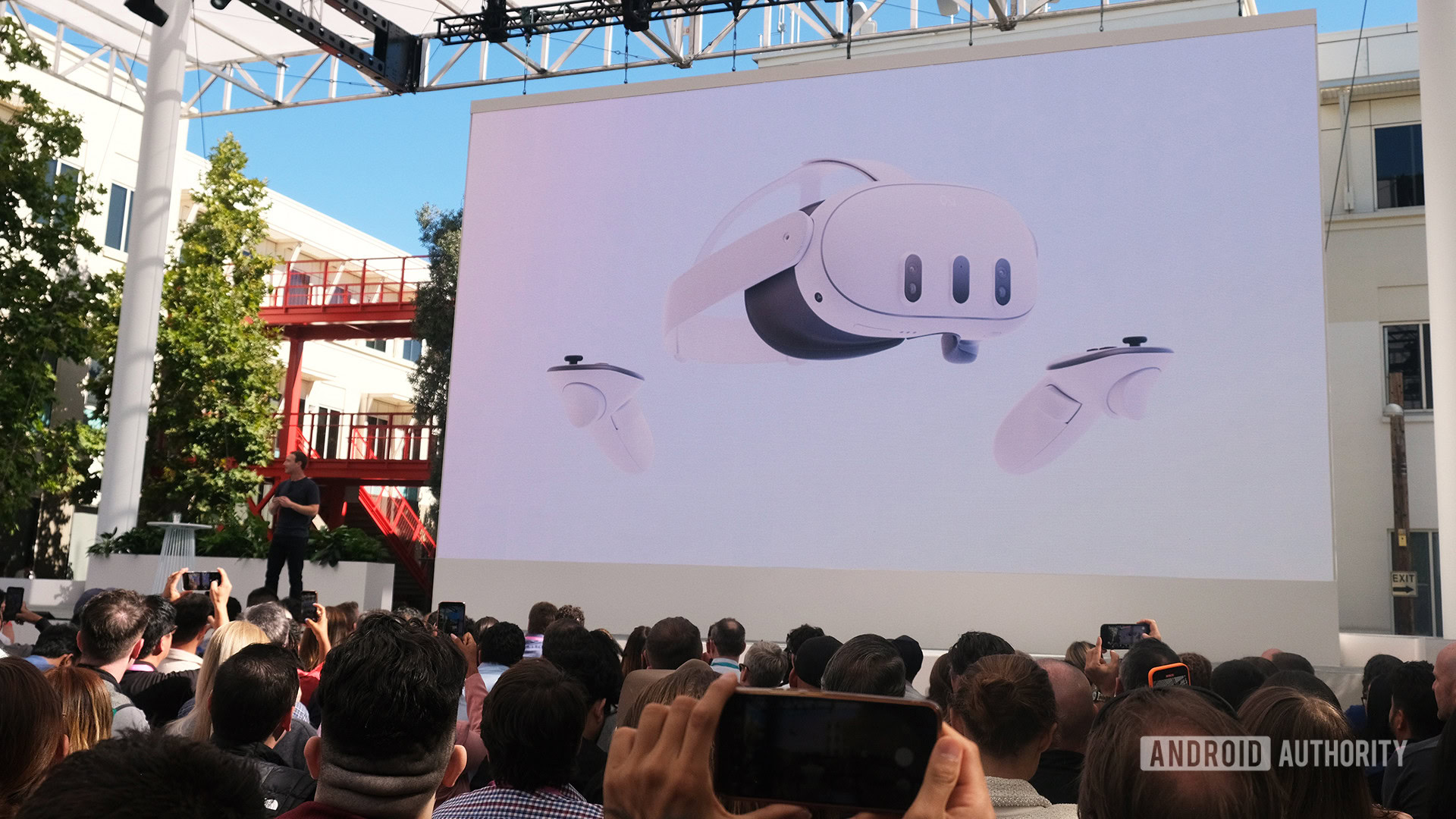Affiliate links on Android Authority may earn us a commission. Learn more.
Any XR headset can now run Meta Horizon OS, and that should worry Google

- Meta has opened its Horizon OS to other manufacturers, expanding the potential for mixed reality devices.
- ASUS and Lenovo have already announced plans for new gaming/productivity headsets built on Horizon OS.
- Google’s rumored Android-based XR OS could finally launch at the upcoming I/O, setting up a showdown with Meta’s platform.
In a move that could reshape the mixed reality landscape, Meta today announced that it is opening up its Meta Horizon OS to third-party manufacturers. Formerly known as Quest OS, this Android-based operating system has powered Meta’s successful Quest line of headsets. Now, other companies will be able to leverage Horizon OS to create their own mixed-reality devices.
This announcement comes just weeks before Google’s anticipated unveiling of its own Android-based Extended Reality (XR) operating system. The timing suggests that Meta is making a preemptive strike to maintain dominance in the rapidly maturing XR market.
In a blog post, Meta emphasized its belief in open platforms, stating, “As we’ve seen with the PC and smartphone industries, consumers are best served by a broad hardware ecosystem…..all running on a common platform.”
Meta’s decision to open Horizon OS highlights the company’s confidence in its technology and its aim to become the default platform for all things VR/MR. The company has already lined up notable partners. ASUS Republic of Gamers will tap into its gaming expertise, while Lenovo will leverage its ThinkPad heritage to develop their standalone VR/MR headsets based on Meta’s OS. Perhaps the most intriguing collaboration, however, is with Microsoft to create a special, limited-edition Meta Quest inspired by the Xbox.
Alongside opening up Horizon OS, Meta announced that it is removing barriers between its App Store and App Lab, hoping to foster a vibrant and diverse app ecosystem. The company is even extending an invitation to the Google Play 2D app store, promising the same “economic model” Google enjoys on other Android-based devices. However, the specific mention of “2D” suggests we might not see the full range of VR/XR options available through Google Play on Horizon OS.
Why Google should be worried
Google’s XR dreams remain shrouded in mystery. Hints of a Samsung partnership surfaced at last year’s I/O, but we’ve had no concrete updates on it since. With Google expected to unveil its own Android XR OS soon, it will now definitely have to face comparisons and competition with Meta’s Horizon OS.
Meta clearly has the first-mover advantage with a mature, proven operating system. Google’s XR OS may face a steeper adoption curve among headset manufacturers as the less established platform. Plus, the Quest brand is basically synonymous with consumer VR/AR. Even with Google’s strong reputation in software, Meta has immediate brand recognition to leverage in this emerging market.
It’s not all bad news, though. History has shown that even with a shared core like Android in the smartphone space, manufacturers find ways to differentiate their devices. Google could still carve out a notable position by focusing on a uniquely intuitive and polished software experience, similar to its Pixel lineup.
While Meta’s bold move lays the foundation of a potential XR rivalry, consumers stand to gain the most. As both companies strive to win over users, we could see rapid advancements in headset capabilities, price reductions, and a richer, more diverse range of VR/MR experiences.
The focus now shifts to Google and its rumored mixed reality plans. We expect more updates at the company’s I/O developer conference, which begins on May 14.